My first-ever KubeCon - KubeCon+CloudNativeCon North America 2023
 Rajdeep Pal
Rajdeep Pal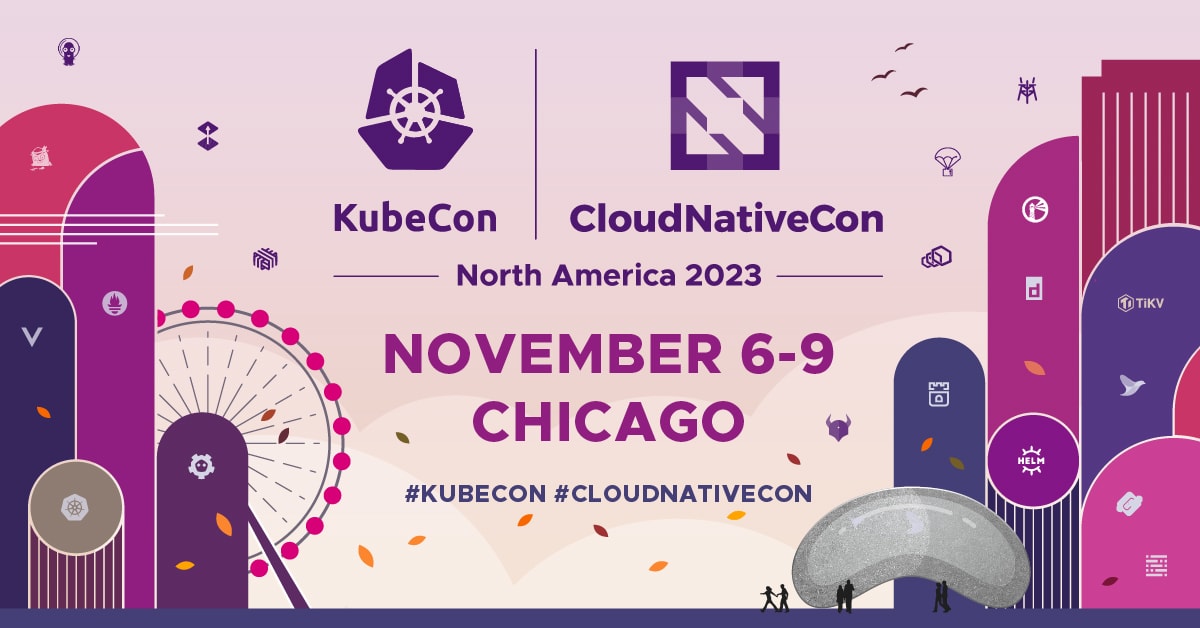
Introduction
This blog is kind of a personal experience cum guide for beginners when they first encounter such a huge and important conference. Although KubeCon is the first conference I attended, it is certainly the largest. Earlier I have been to community-driven conferences such as Google Cloud Community Days Kolkata 2023 and Kubernetes Community Days Mumbai 2023, they were quite big too but they lasted for a day or two. KubeCon was much larger and more overwhelming for new folks in the field. I attended my first KubeCon virtually as the Dan Kohn Scholarship approved me for virtual attendance. Before deep-diving into the event and my experiences, let's start with the basics of the event or any event hosted by the Cloud Native Computing Foundation.
Like any other event, you need to register at their official site. You can learn about upcoming events on their official page. Sometimes it might be not easy to afford the cost of attending these events, but CNCF also offers scholarships to individuals. To provide an overview, CNCF mainly offers scholarships based on 3 categories namely - Diversity, Need-Based, and Maintainer.
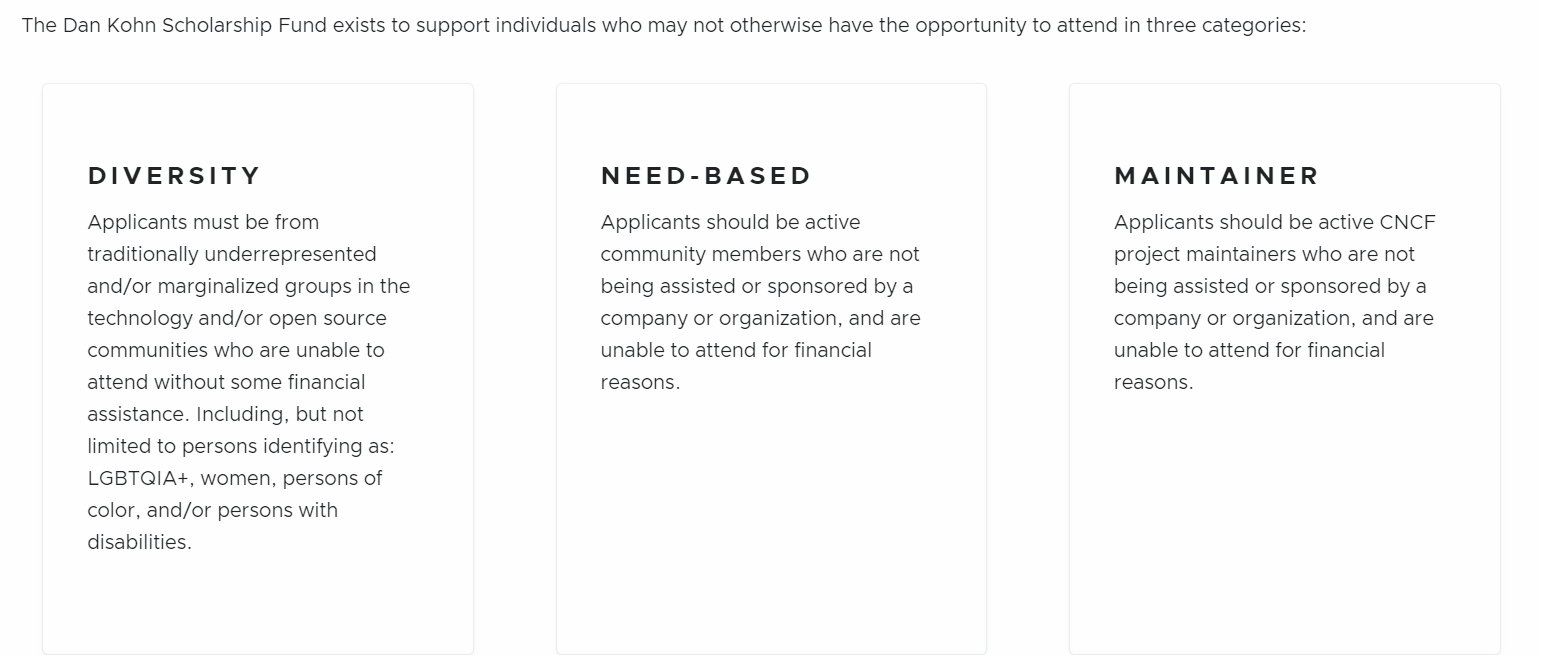
KubeCon serves as a dynamic platform for attendees to actively engage with the expansive Kubernetes community. Through a diverse array of networking avenues, including Birds of a Feather sessions, social events, and dedicated breaks, participants have the opportunity to connect with fellow developers, contributors, and users of Kubernetes. These interactions not only foster collaboration but also facilitate the exchange of knowledge and experiences. The conference's emphasis on networking creates an environment where like-minded professionals and industry experts can forge connections, share insights, and collectively contribute to the ever-evolving landscape of container orchestration and cloud-native technologies.
General Information about KubeCon
This year's KubeCon North America 2023 was held from November 6th to 9th of 2023 in Chicago, Illinois.

Education and collaboration are vital to the future of the CNCF ecosystem and it is imperative to CNCF that everyone in the community that wants to participate feels welcome to do so regardless of gender, gender identity, sexual orientation, dis/ability, race, ethnicity, age, religion, or economic status.
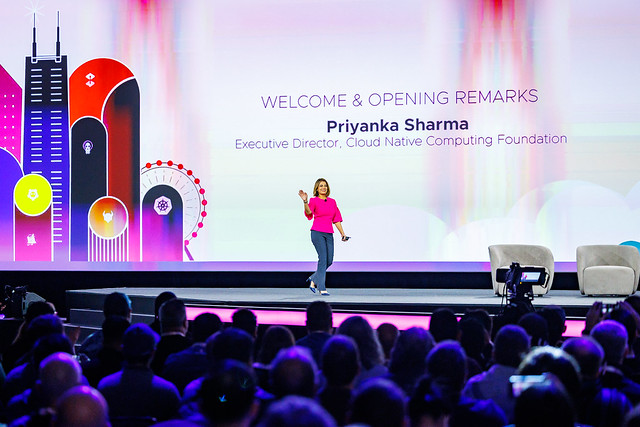
Every KubeCon has more or less the same schedule except for the talks. The talks vary depending on the CFPs submitted. To give a very basic plot of the event, here is a schedule of this year's KubeCon:
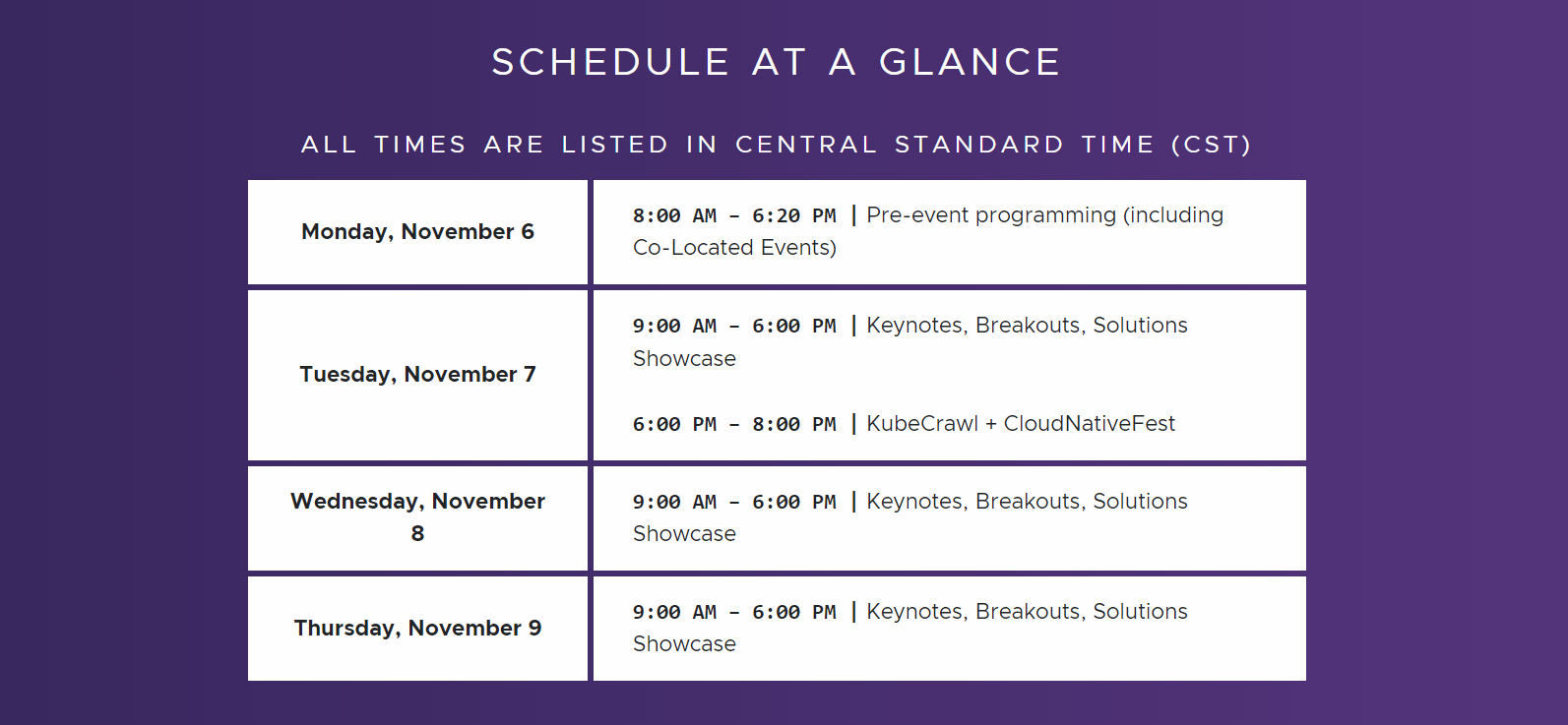
In case you want to check the full schedule, click here. You can change the timezone of the schedule according to your local time.
For a beginner or someone who is attending any KubeCon can be very overwhelming, some might think of leaving the world of tech and open-source but I would suggest just holding your nerve, there is a place for everyone in the community. I am also a beginner in this field, speaking from that perspective, one must look carefully at the schedule and look for one's interests and talks related to the same. Also, keynotes are important for beginners and are mainly conducted by CNCF Ambassadors.
My experiences
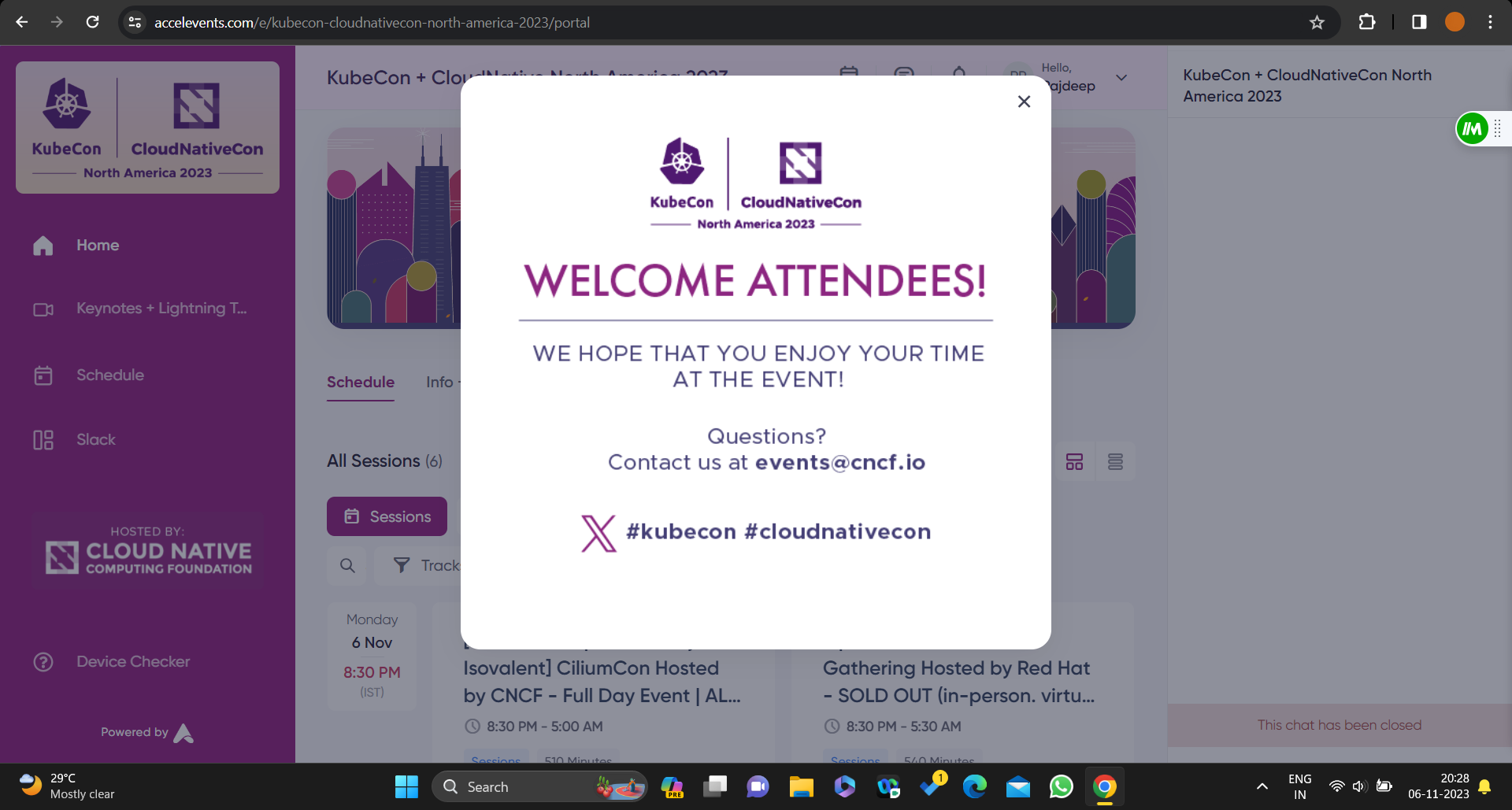
I want to showcase some of the talks from KubeCon North America that I attended virtually.
Keynote: Welcome + Opening Remarks - Priyanka Sharma, Executive Director, Cloud Native Computing Foundation
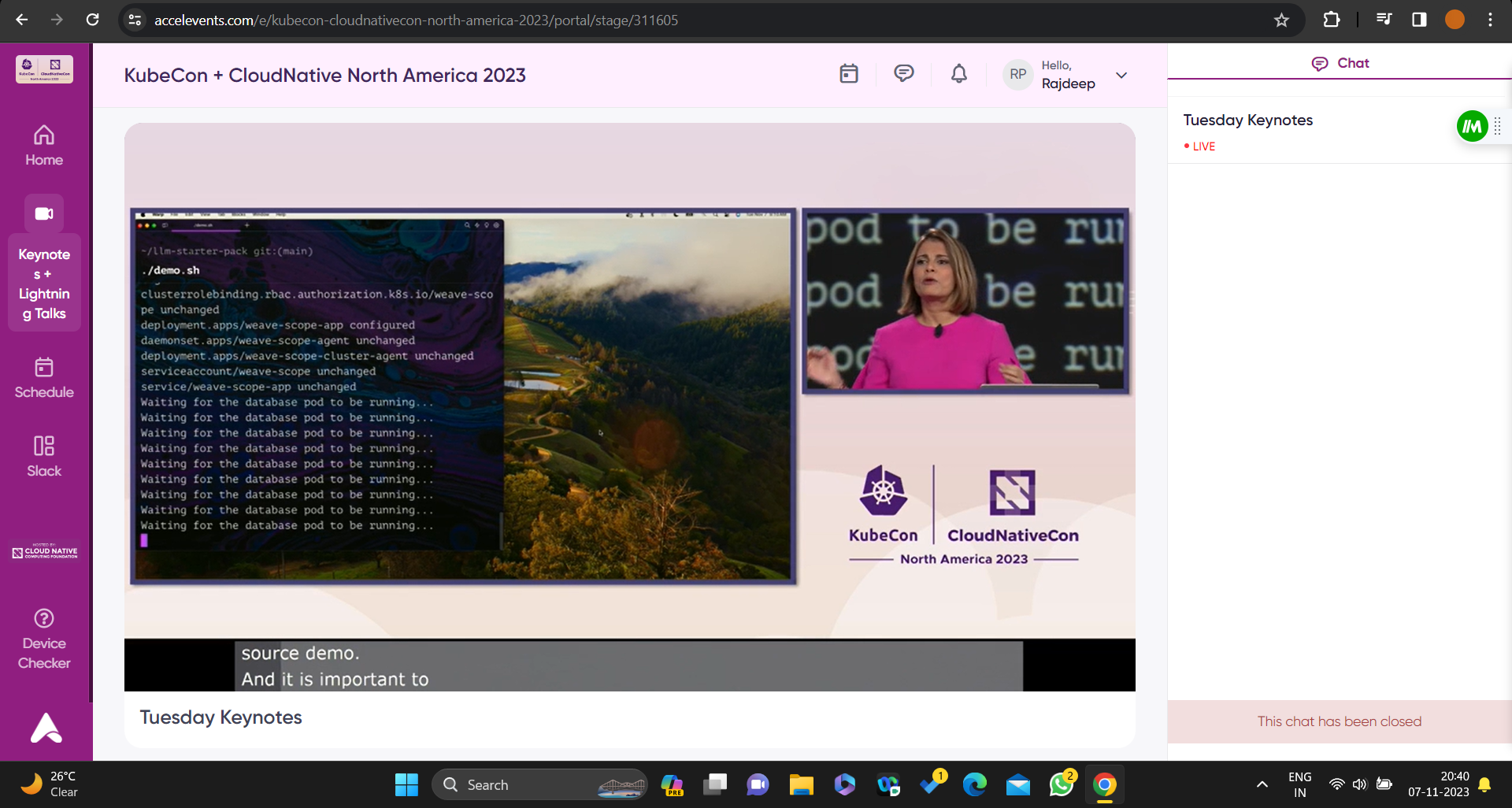
Keynote: Windy City Whirlwind: Stirring Up the Cloud Native Ecosystem - Taylor Dolezal, Head of Ecosystem, Cloud Native Computing Foundation
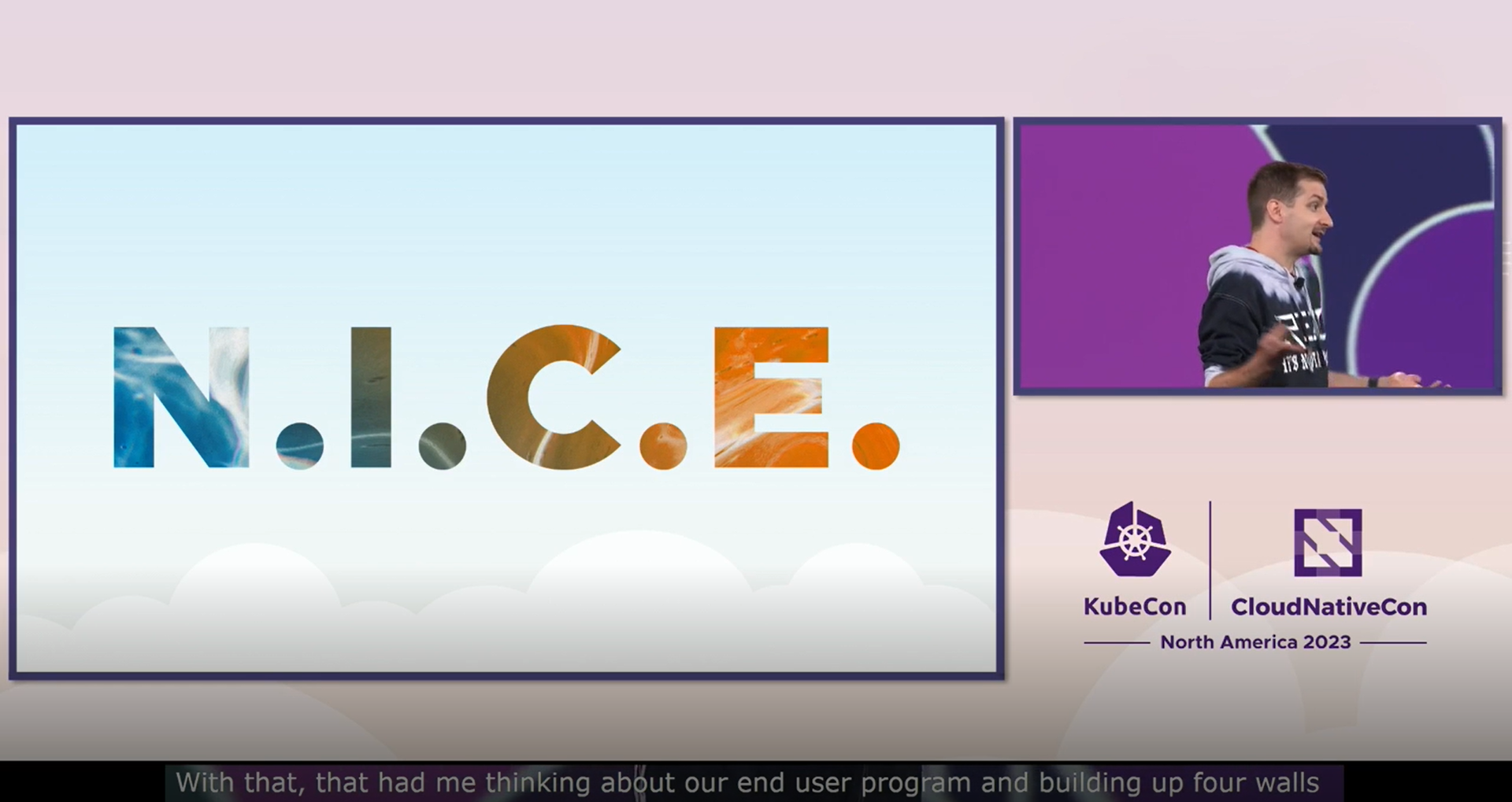
Keynote: Blueprint Banter: Cloud Native Conversations by the Fireside - Taylor Dolezal, Cloud Native Computing Foundation; Alolita Sharma, Apple; Mike Bowen, Blackrock; Cailyn Edwards, Shopify; Mukulika Kapas, Intuit
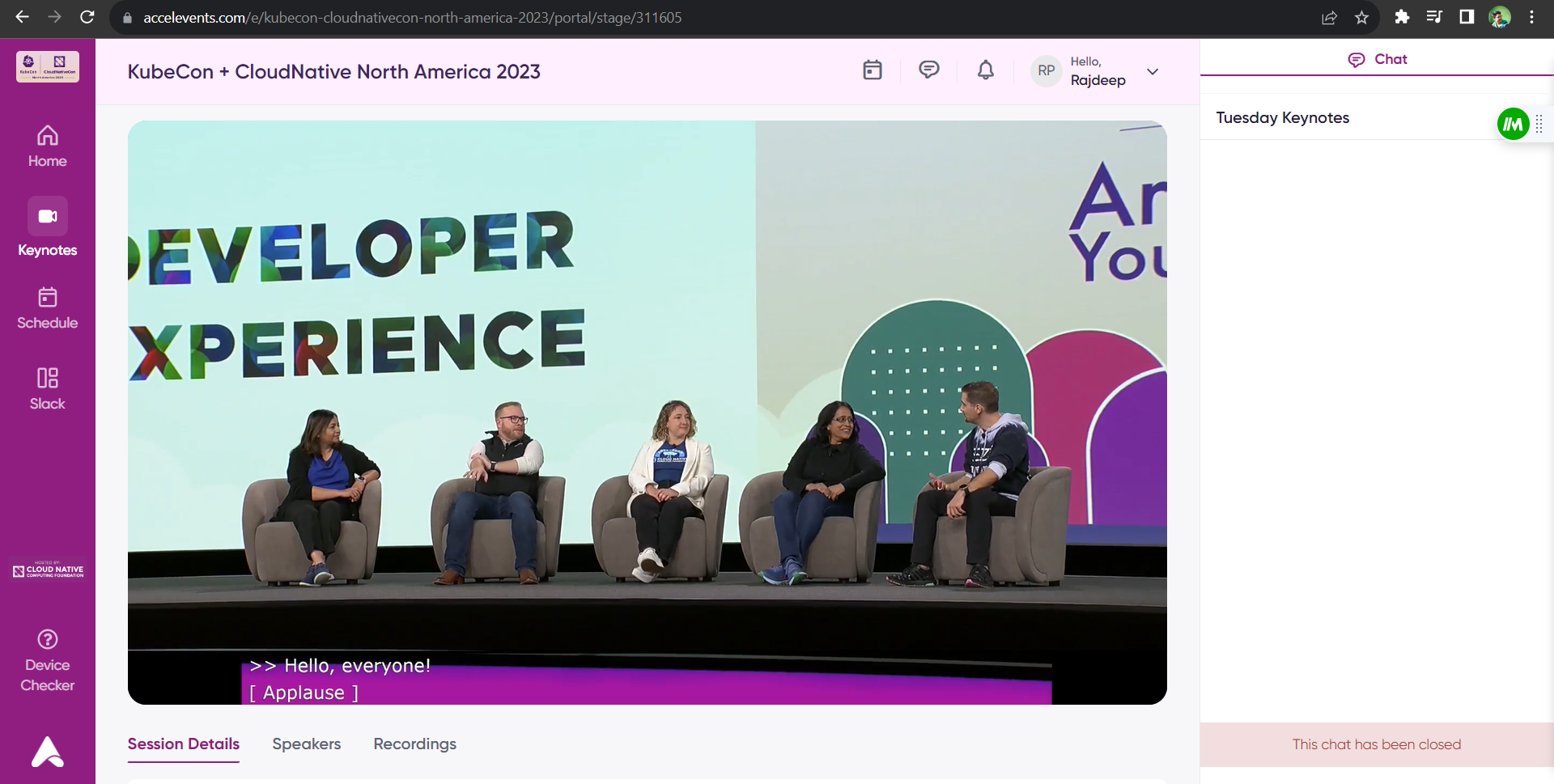
Humans of Cloud Native Panel – Finding Your Way in #TeamCloudNative - Mitch Connors, Aviatrix; Miranda Jaramillo, The Trevor Project; Bart Farrell, CNCF Ambassador; Whitney Lee, VMware
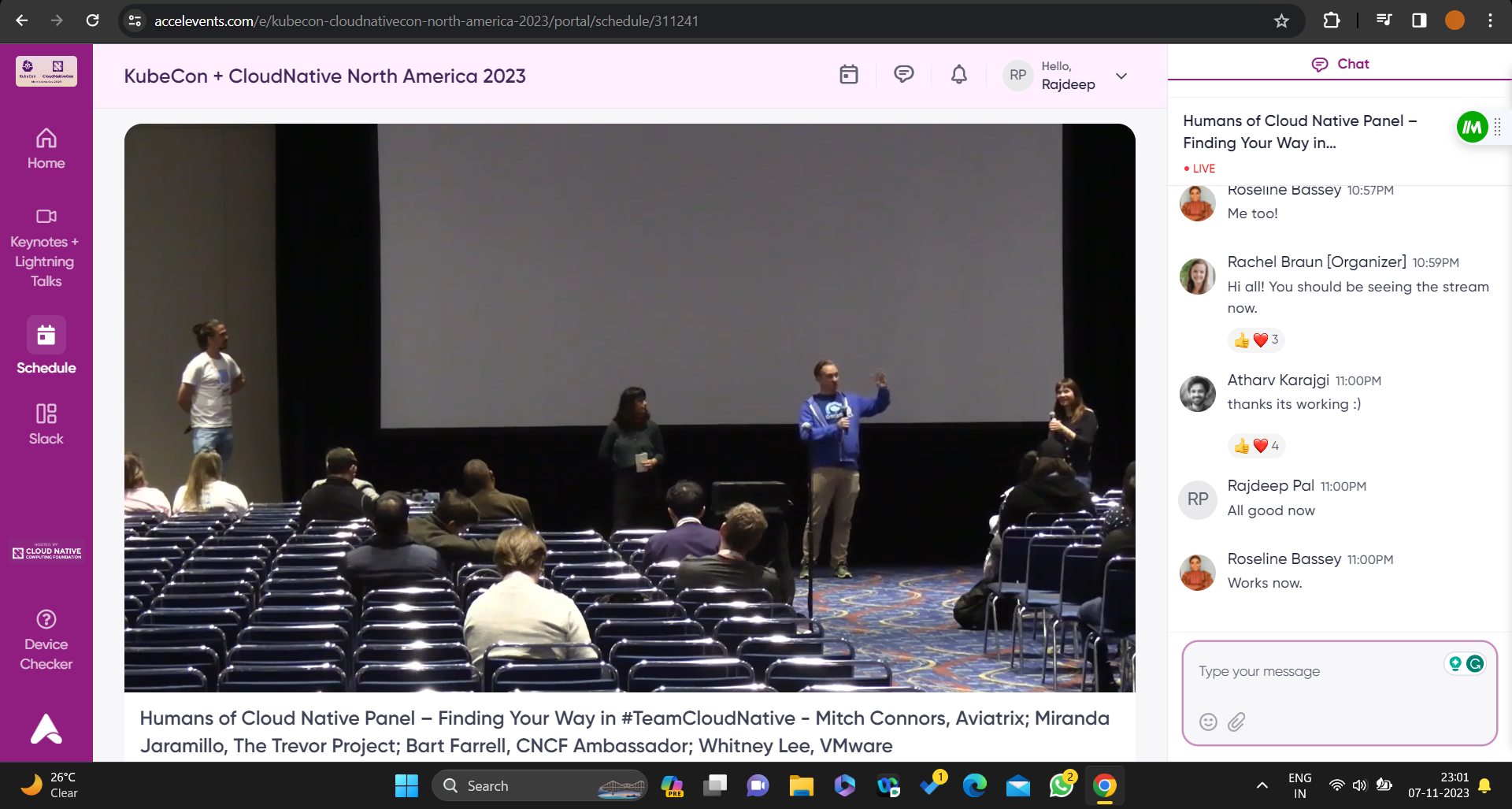
From Non-Tech to CNCF Ambassador: You Can Do It Too! - Julia Furst, Veeam
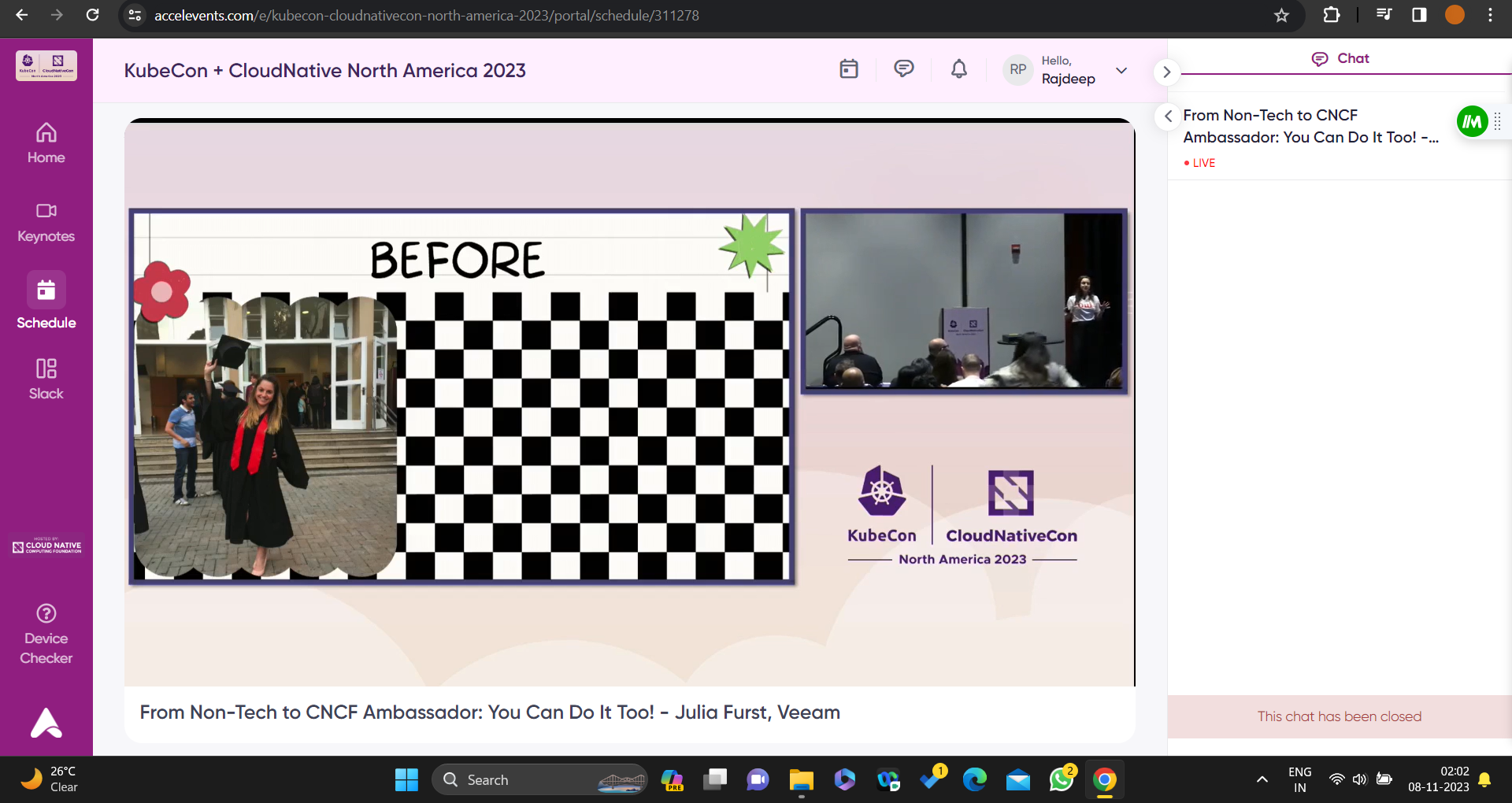
From Classroom to Cluster: Embracing Kubernetes as a Student and Contributing to Its Development - Nitish Kumar, Faeka Ansari & Grace Nguyen, Independent; Meha Bhalodiya, Red Hat; Leonard Pahlke, Liquid Reply
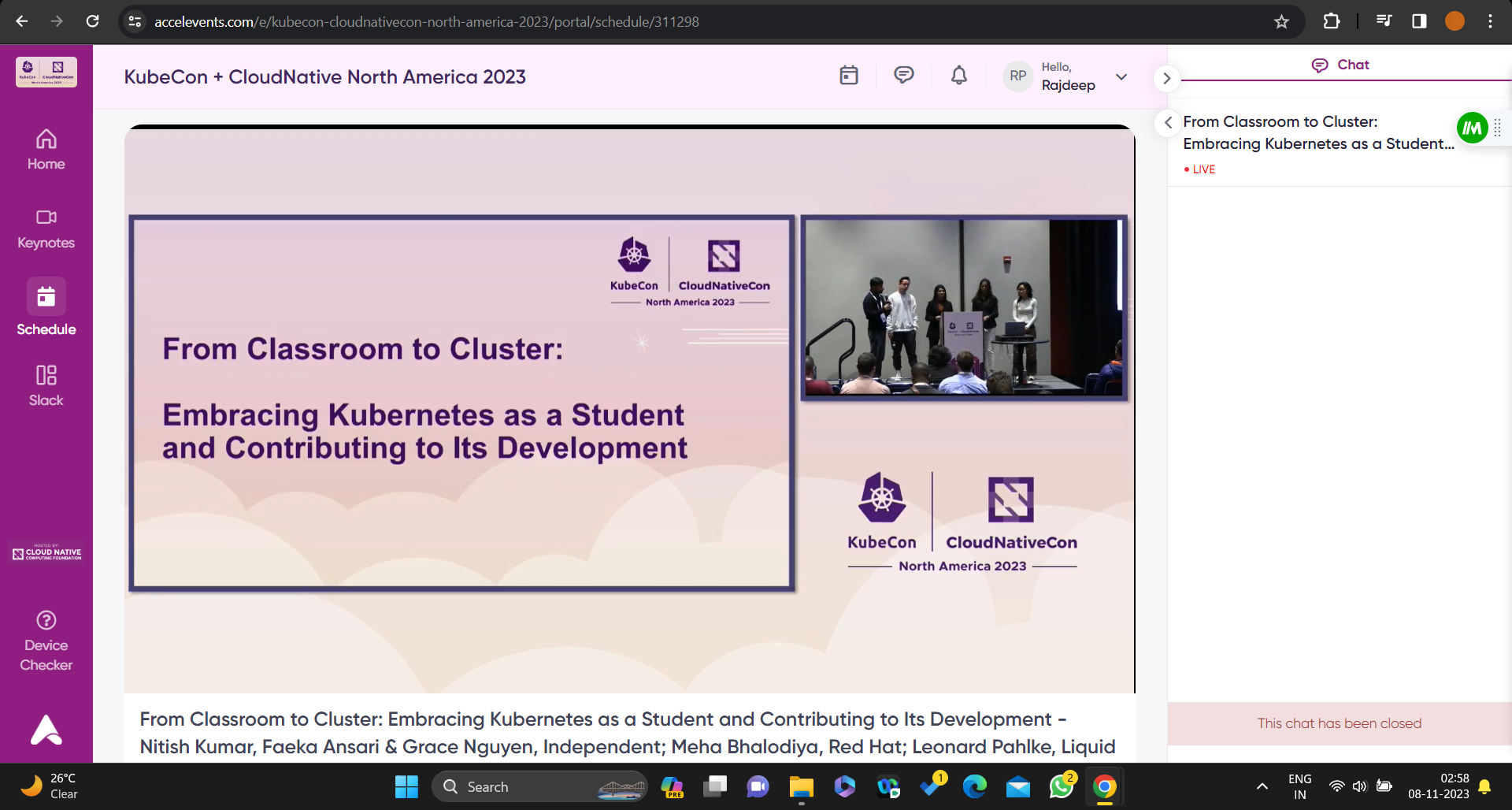
Learning Kubernetes by Chaos – Breaking a Kubernetes Cluster to Understand the Components - Ricardo Katz, VMware & Anderson Duboc, Google Cloud
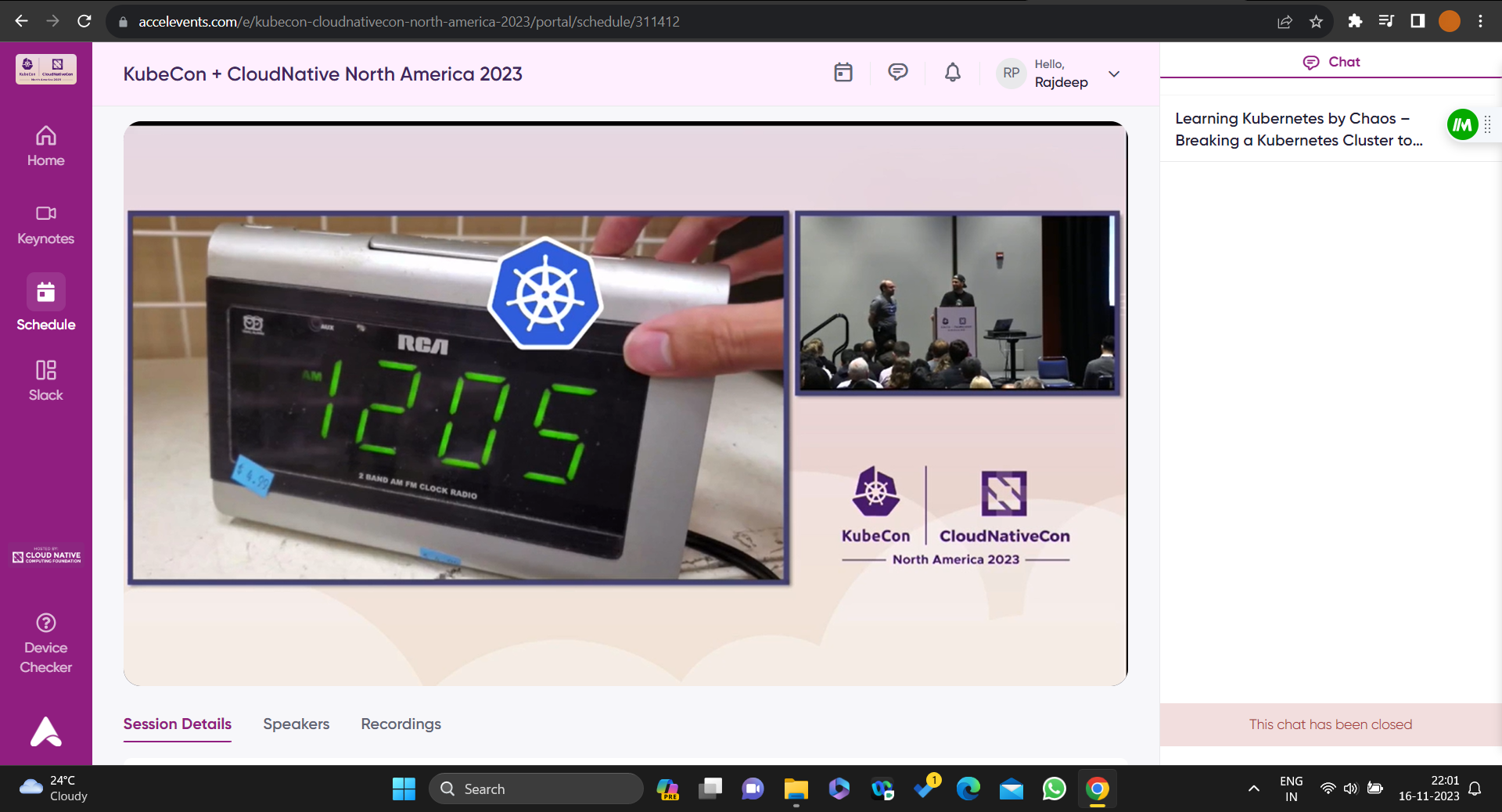
[Livestream Sponsored by Vulk Coop] Cloud Native Telco Day Hosted by CNCF - Half Day Event
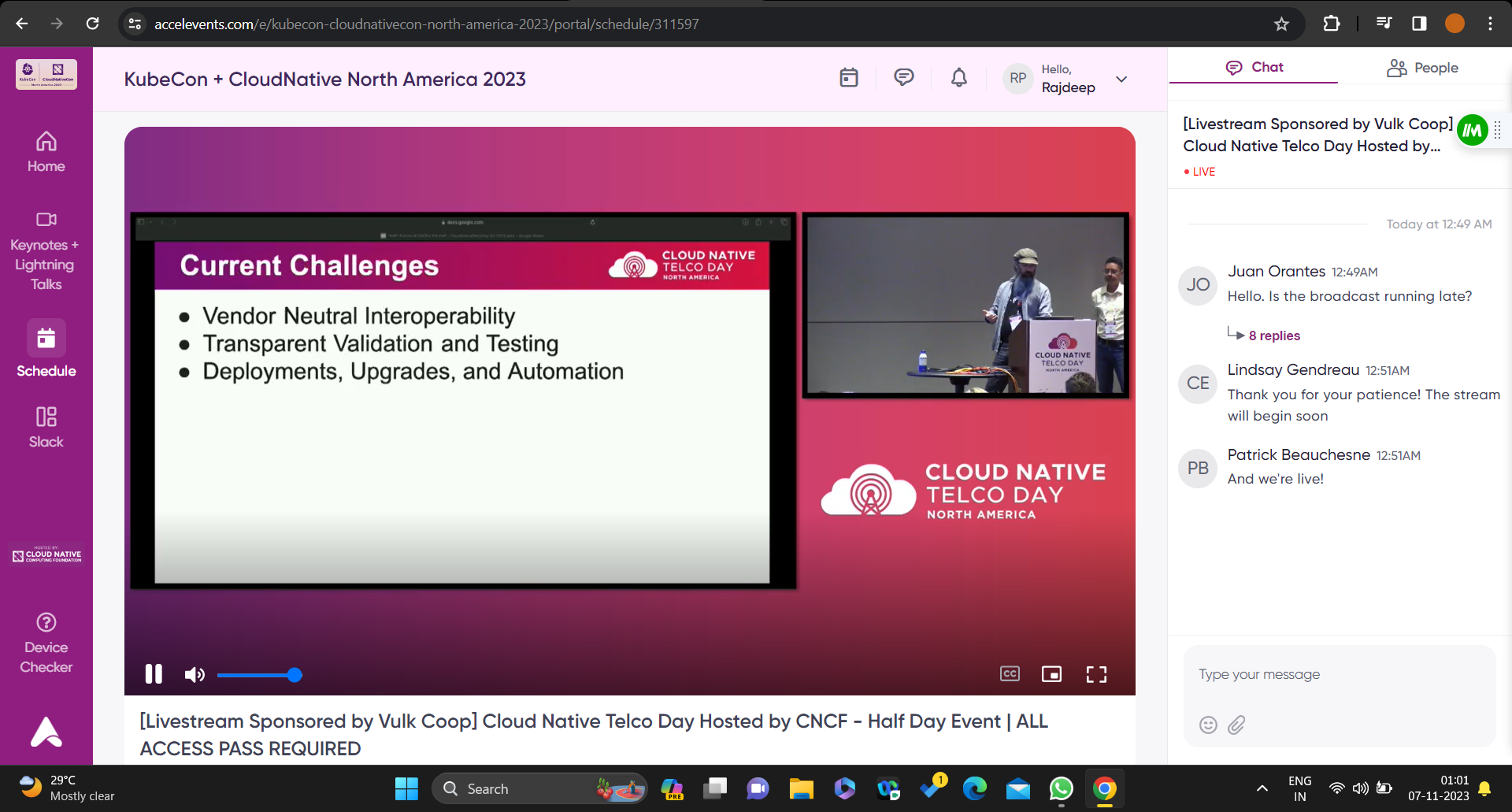
15,000 Minecraft Players Vs One K8s Cluster. Who Wins? - Justin Head, Super League Gaming & Cornelia Davis, Spectro Cloud
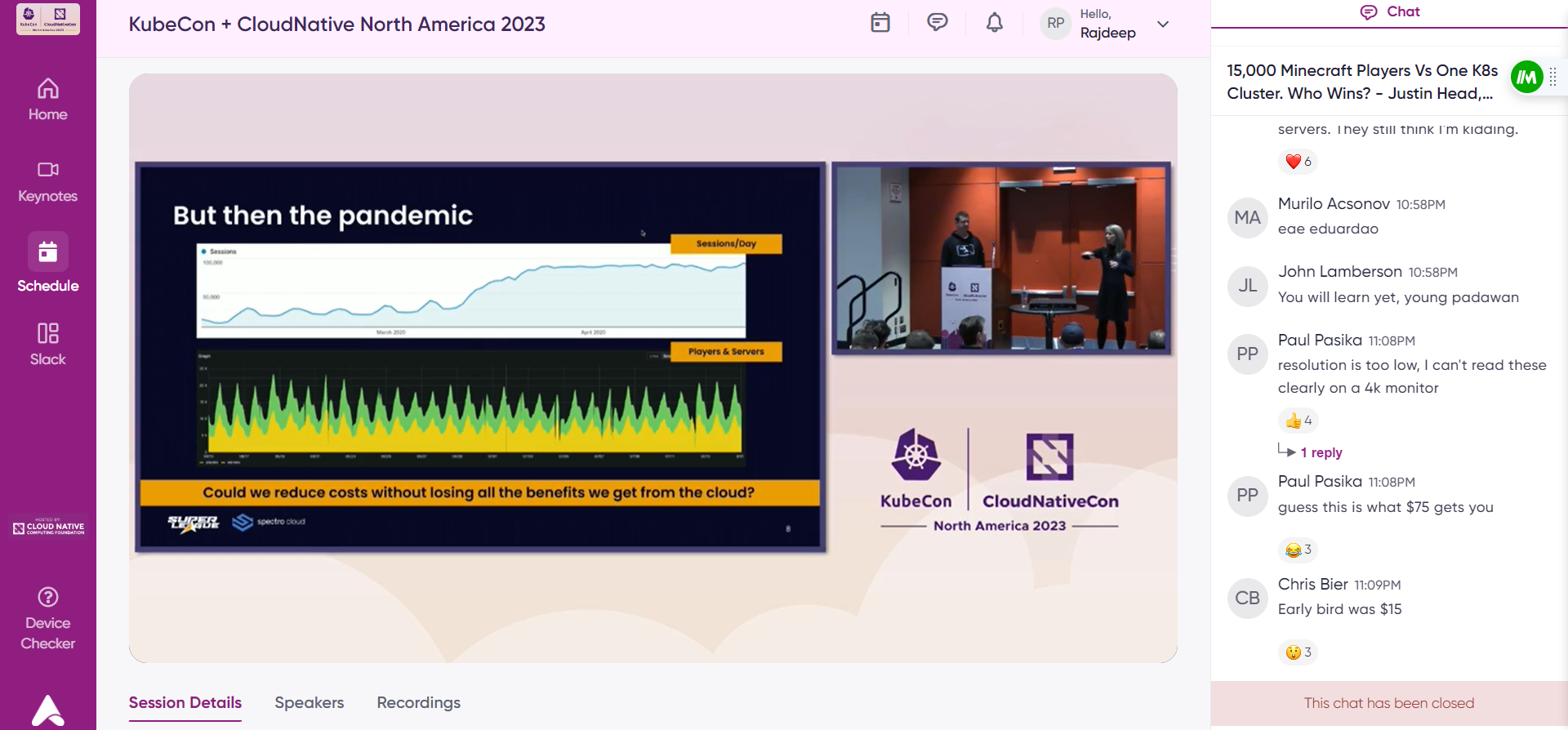
Rise of the Global Cloud Native Community: The Untold Stories - Ashutosh Kumar, Elastic & Rajas Kakodkar, VMware
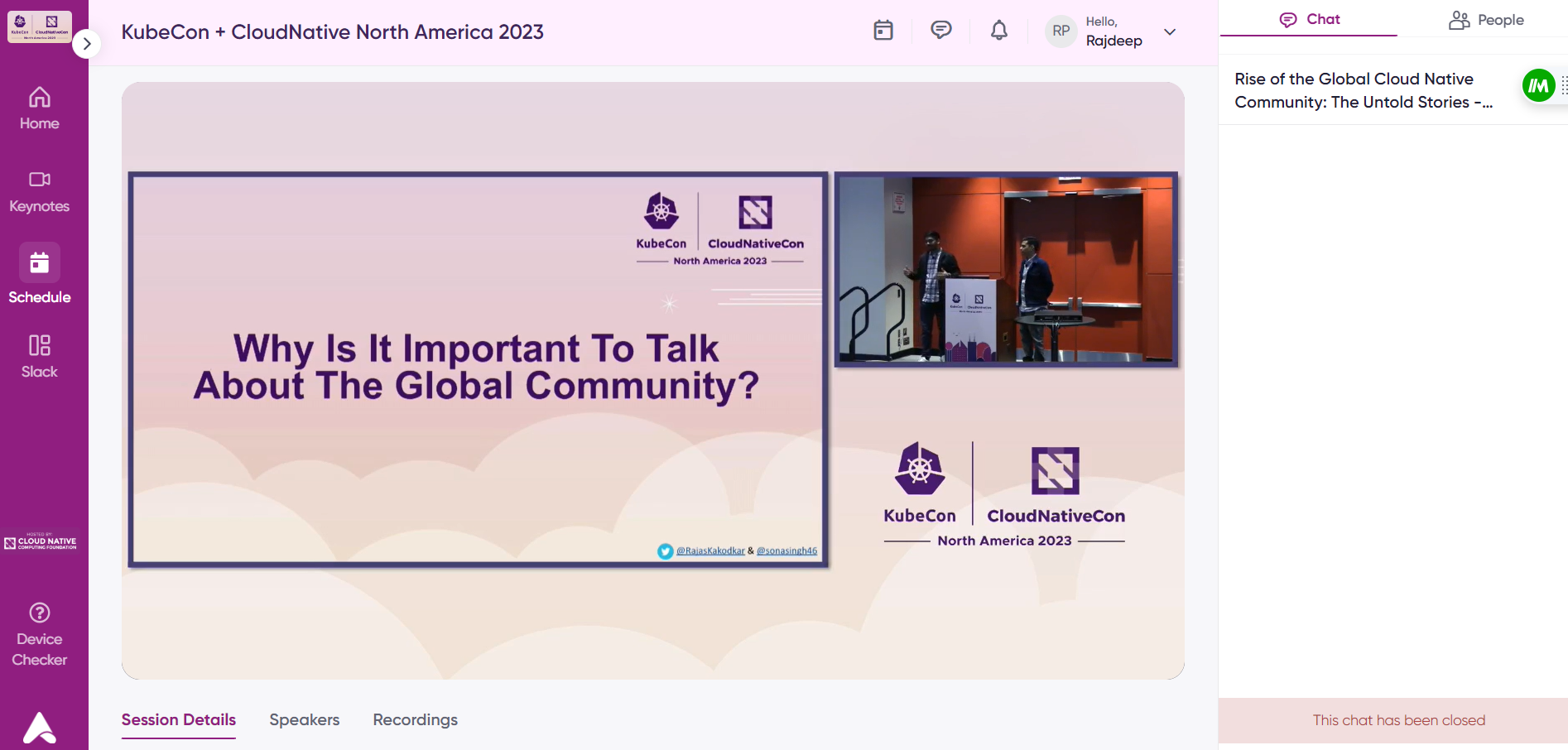
These are some of the talks I attended during the events but apart from these, there were a lot more talks that were very helpful and educational. KubeCon provides the talks on social media a few days after the event, and we can hear them and learn whenever we want. The Slack channel helped us to network with people all around the world.
My learnings and key takeaways from KubeCon
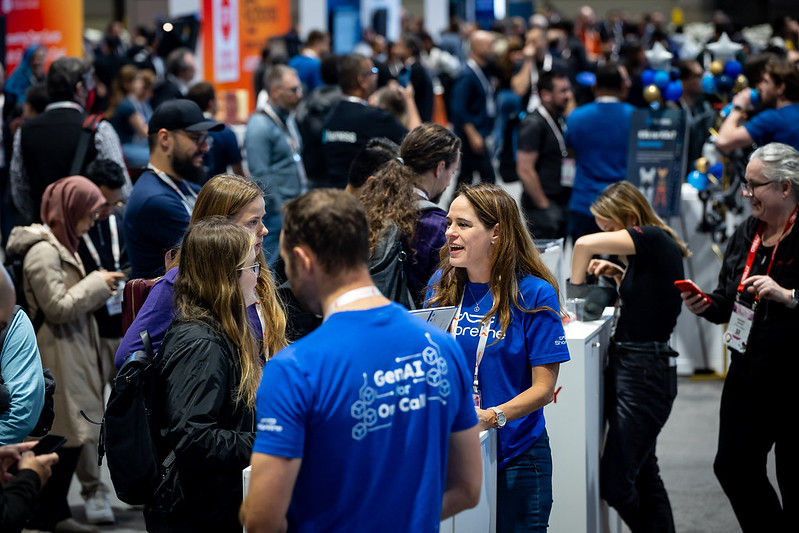
KubeCon, a significant conference for Kubernetes and cloud-native technologies, usually offers a wealth of insights and developments. Here are some potential key takeaways from such an event:
Emerging Trends: KubeCon often showcases emerging trends in cloud-native technologies. This could include new tools, approaches, or strategies in Kubernetes orchestration, containerization, and microservices.
Innovative Use Cases: Attendees might learn about innovative use cases and real-world applications of Kubernetes across various industries, demonstrating how it's being leveraged for different purposes.
Security and Governance: Discussions around security, compliance, and governance within Kubernetes ecosystems could be a focal point, addressing challenges and best practices to secure containerized environments.
Community and Collaboration: KubeCon emphasizes the importance of community and collaboration in open-source projects. Attendees might learn about new collaborations or initiatives within the Kubernetes community.
Networking and Partnerships: The conference is an excellent opportunity for networking and forging partnerships. Companies often use it to announce collaborations or new integrations within the Kubernetes ecosystem.
Scaling and Performance: Discussions around scaling applications, optimizing performance, and managing large-scale deployments on Kubernetes could provide valuable insights into handling complex infrastructures.
Operator Frameworks and Automation: Automation and operator frameworks within Kubernetes are likely to be highlighted, focusing on streamlining operations and managing complex applications effectively.
Ecosystem Growth: Updates on the growth of the Kubernetes ecosystem, including new tools, extensions, or enhancements to the Kubernetes ecosystem, may be shared.
Diversity and Inclusion: Initiatives and discussions around diversity, inclusion, and expanding participation within the tech industry, especially in cloud-native and Kubernetes spaces, might be highlighted.
Roadmap and Future Developments: Keynotes or sessions might reveal the future roadmap of Kubernetes and associated technologies, giving insights into upcoming features or enhancements.

Good to Have for Beginners
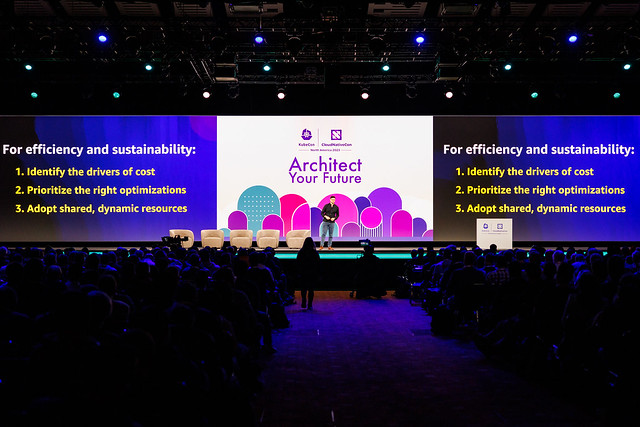
Attending KubeCon as a beginner in the Kubernetes ecosystem can be overwhelming yet exciting. Here are some points to consider:
Preparation:
Understand Basics: Familiarize yourself with Kubernetes concepts, such as pods, services, deployments, etc. Online tutorials or introductory videos can help.
Set Goals: Define what you want to learn or achieve from the conference. It could be networking, learning about specific tools, understanding best practices, etc.
Review Schedule: Study the event schedule in advance. Identify sessions, workshops, and keynotes relevant to your goals.
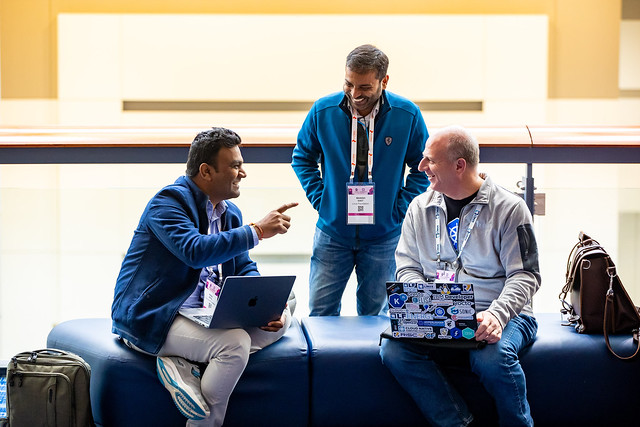
During the Conference:
Take Notes: Carry a notebook or use an app to jot down important points, new tools, or ideas you come across during sessions.
Engage & Network: Don't hesitate to talk to people. Networking is a valuable aspect of conferences. Engage with speakers, attendees, and sponsors.
Visit Booths: Explore the expo area to learn about various tools and solutions related to Kubernetes.
Ask Questions: If you have doubts or need clarification during sessions, ask questions. Many others might have similar queries.
Attend Workshops: Hands-on workshops are great for practical learning. Participate actively to understand tools and processes better.
Be Open to New Ideas: Kubernetes and its ecosystem are vast. Stay open-minded to new concepts and technologies.
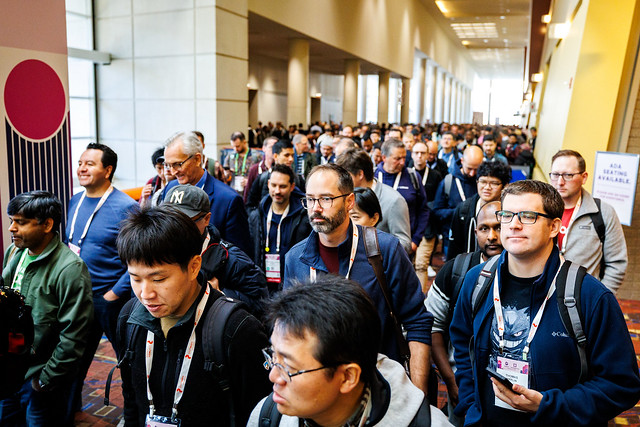
After the Conference:
Review & Reflect: Take some time after the conference to review your notes, revisit resources, and reflect on what you've learned.
Follow Up: Connect with people you met via LinkedIn, Twitter, or email. Keep the conversation going and build your network.
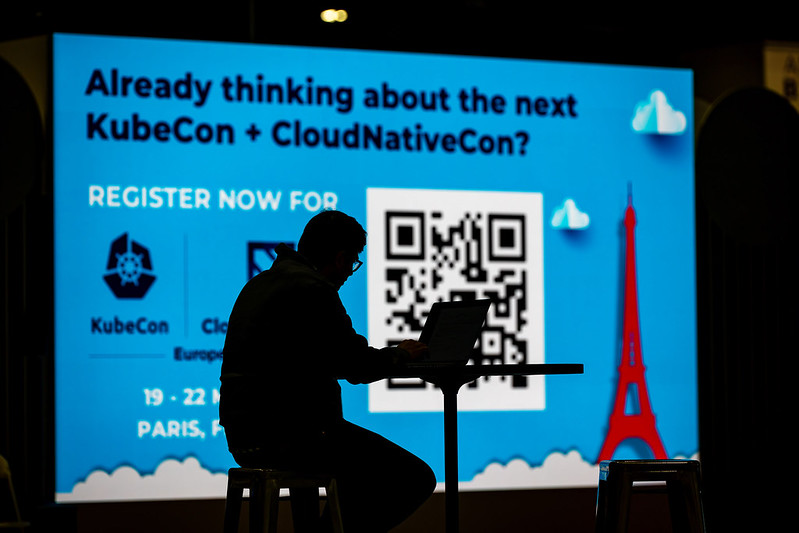
Remember, KubeCon can be intense, so it's okay not to absorb everything at once. Enjoy the experience and take away what you can, knowing you can continue learning and exploring afterward.
Subscribe to my newsletter
Read articles from Rajdeep Pal directly inside your inbox. Subscribe to the newsletter, and don't miss out.
Written by

Rajdeep Pal
Rajdeep Pal
I am a student learning different DevOps tools, exploring opportunities, connecting with people, and learning while doing.